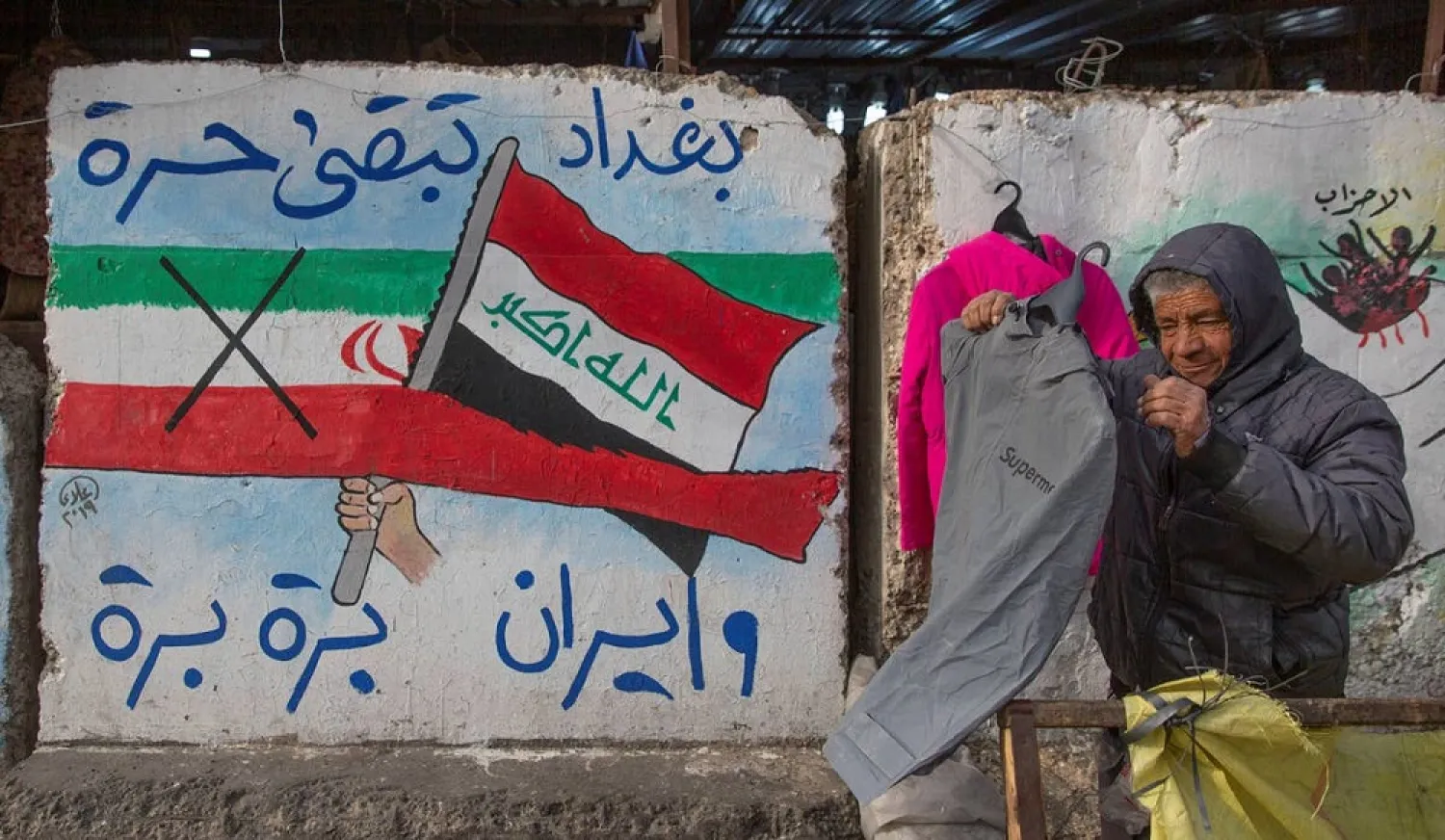As Iraq heads to the polls on October 10, a spotlight has fallen on the outsized influence neighboring Iran wields -- but also on the growing popular backlash against it.
The parliamentary vote is being held early as a concession to a pro-democracy movement that railed against an Iraqi political system it decried as inept, corrupt and beholden to Iran.
“One of the more alarming things for Iran in Iraq right now is the huge sense of public dissatisfaction towards Iran,” said political scientist Marsin Alshamary.
“That’s one of the things Iran wasn’t expecting and something it has to grapple with,” said the Harvard Kennedy School researcher, according to AFP.
At the height of unprecedented protests in November 2019, furious demonstrators attacked and torched Iran’s consulate in the southern city of Najaf, shouting “Get out of Iraq!”
When many protesters were killed by gunmen, activists accused pro-Iranian factions that play a major role in Iraq and which the United States blames for attacks on its interests there.
The paramilitary network known as Popular Mobilization Forces (PMF) -- formed in 2014 to defeat the ISIS group -- includes many pro-Iranian Shiite groups. It has since been integrated into Iraq’s state security apparatus.
In Iraq’s parliament too, political parties with deep ties to Tehran have formed powerful blocs with major influence in past governments.
Iran has also become one of Iraq’s largest trading partners, a major boost for Tehran, which has been battered by sanctions over its disputed nuclear program.
Iraq imports Iranian electricity as well as food, textiles, furniture and cars.
But many Iraqis worry that Iranian influence is now too strong.
Anti-Iranian anger has flared in recent years, even in what is known as Iraq’s southern Shiite heartland.
“Iran has lost a lot of the base in the south and the center of Iraq, the Shiite base, which it assumed for a long time would be a loyal base,” said Renad Mansour of the Chatham House think tank.
“Many of the parties that are aligned with Iran find it more difficult to maintain popularity.”
The 2018 election, marked by record abstentions, allowed PMF candidates to enter parliament for the first time, after the victory against ISIS.
Today, they aim to gain strength in the chamber, but experts are skeptical.
For pro-Iranian MPs, the relationship with Tehran is nothing to shy away from.
One of the leading figures of the PMF bloc, Baghdad lawmaker Ahmed Assadi, said in a recent TV interview that “our relationship with the republic is not a new one, it is a strategic one”.
“There is no submission or alignment,” he said. “It is a relationship based on the balance between the interests of Iraq and the interests of” Iran.
Mohammed Mohie, spokesman for the Kataib Hezbollah, a powerful PMF faction, told AFP that “relations with Iran are in the interest of the Iraqi people and must be strengthened.
“We have never seen any negative interference from Iran in Iraqi affairs.”
Looking at the protesters’ demands, he said that improving public services and infrastructure must be one top priority, but he also stressed another: the withdrawal of US troops.
Iraqi political scientist Ali al-Baidar said the pro-Iran factions are seeking to “consolidate their presence in politics and government”.
They want “to be present on several levels -- diplomacy, culture, sport -- to change their image with the general public” which associates them with the security apparatus.
Lahib Higel of the International Crisis Group said she expects the pro-Iran parties in parliament “to retain approximately the same portion of seats. I don’t see that there is going to be a significant increase for them”.
Tehran, she said, will hope for “a prime minister they can work with, that is acceptable to their agenda”.
Mansour said that while the election is important, “the key is the backroom deals that are made as part of forming a government”.
“In that process, Iran has historically had a big role,” he said. “Iran has proven to be the most capable external actor when it comes to government formation.”














